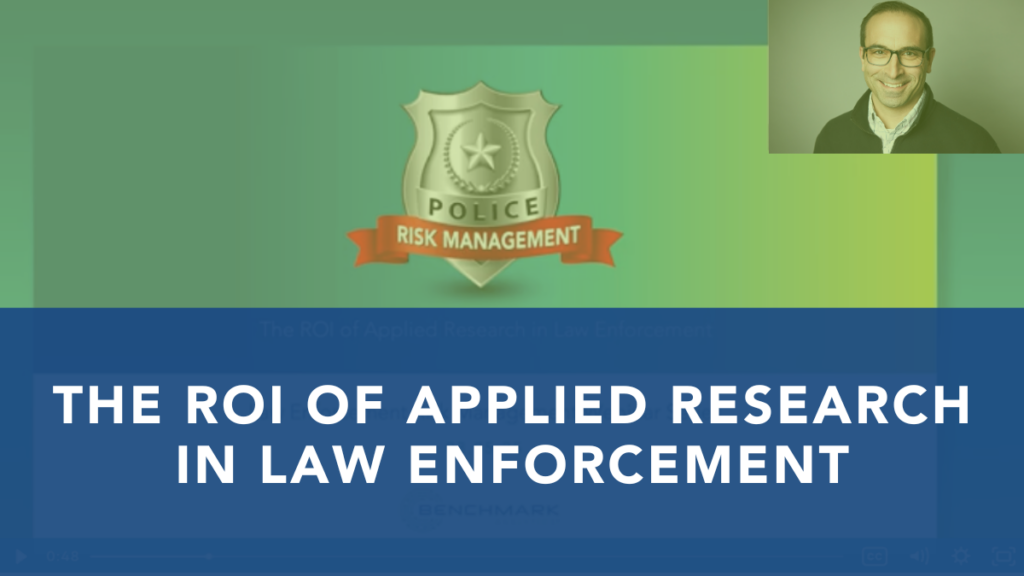Proactive Responses for Police Retention
Posted
August 19, 2021
Share:
Police retention has long been a significant point of discussion and reflection among departmental leaders, researchers, and policymakers. Like so many issues facing police leaders today, there is no simple solution to this complex problem. There are, however, both established strategies and innovative new ideas to help leaders confront the challenges of retention, enabling their departments to fulfill their mission and serve the needs of their communities more effectively.
As was discussed in our previous article, there is a genuine need for departments to expand their current staffing levels to deal with rapidly evolving challenges facing policing in this country. Looking at the most recent figures available from research produced by Police Executive Research Forum (PERF), resignations have increased as much as 18% year over from the previous year, while retirements have topped out at a 45% increase over the same period. This level of police attrition combined with recent recruitment shortfalls has established police retention as a topic of urgent interest to police leaders.
Why Police Retention is Important
One of the more easily quantifiable problems of insufficient officer retention is the bottom-line cost to agencies. With the cost of training a recruit surpassing $100,000 in many departments, the desire to not have that investment “walk out of the door” with an officer transferring between departments or leaving the profession is easily understood. This problem is especially prevalent, though not exclusive to smaller departments, which officers sometimes see as stepping stones to more comprehensively resourced agencies.

Less quantifiable but of vital importance is the departmental culture that a reasonably stable staff of sworn officers helps create. Though it is difficult to assign a dollar value to the institutional knowledge and expertise lost when officers leave a department before retirement, the loss is felt both within the department and the community it serves. Experienced and successful officers build up a rapport with their colleagues and the community, allowing them to promote a healthy agency culture and understand conditions in the field and pass that experience on to more junior officers.
Why Officers are Leaving
- Chiefs and other departmental executives report salary as the top reason officers exit the profession or join another agency. The problem is especially acute for small departments that often have more limited budgets when compared to that of larger cities and state or federal governments.
- The public perception of policing is changing, driven to some extent by recent high-profile incidents. This degree of social pressure combined with mismatched expectations new officers may have about the nature of the job is a significant driver of early-career attrition.
- Much like in the workforce on the macro-level, police departments face generational changes led by Baby Boomer retirements. While Generation X officers make up a sizeable portion of departments today, millennials are filling many of the vacancies left by retiring boomers. This new generation tends to look beyond the availability of overtime and retirement benefits as primary motivators to stay on the job. They are seeking work that offers personal fulfillment as well as opportunities for advancement and higher pay through skills development, education, and cross-training.
Police Retention Strategies
Though the problems posed by diminishing police retention can be seen as daunting, leaders in the profession are leveraging research from various academic disciplines to address these challenges. Compensation issues are being addressed creatively without increasing base pay by offering benefits like performance bonuses, take-home vehicles, and subsidized education and enrichment opportunities. Departments are using in-depth behavioral interviews, job previews, and sessions with veteran officers to give recruits a 360° view of the profession to prevent them from leaving early in their careers due to a potential misunderstanding about the nature of the job.
There are numerous studies that suggest the younger cohort of officers is looking to satisfy different needs than previous generations with their career in law enforcement. Concepts like a sense of belonging, self-esteem, and self-actualization typically rank higher among millennials than older generations. Departments with rigid hierarchical structures and transactionally based leadership can find themselves at odds with these needs. To address this, agency leaders around the country are taking cues from the private sector and emphasizing work-life balance by offering benefits like flex time off, maternal and paternal leave, and enhanced recognition for exemplary performance.
The evolution of workplace culture in policing cannot solely be driven from the top down. Best practice recommendations from the International Association of Chiefs of Police (IACP) speak to the value of developing the leadership abilities of mid-level supervisors by offering clear career ladders and career counseling to help officers identify opportunities for advanced training and education. This not only helps to promote a positive departmental culture by placing officers that demonstrate these values in positions of influence where they will lead by example, but it also addresses the need for belonging and self-actualization – demonstrating a path of career advancement leading to more responsibility, more opportunity, higher compensation and, ideally, higher job satisfaction.
Data-Driven Tools
Using tools like the Benchmark Management System®, departmental leaders can get quick overviews of an officer’s level of performance while also having the ability to drill down much further into an officer’s conduct, levels of training and educational attainment, and public feedback, to get a much more holistic view of an officer. With a comprehensive view of their officers’ potential, leaders can make data-informed decisions when it is time to allocate resources for additional training, education, and leadership development. This approach helps officers feel a sense of belonging and mission through career progression and promotes a healthy work culture that recognizes and demonstrably values performance.
The challenges of police retention are as diverse as the agencies they affect. Budgetary constraints and the public perception of police are complicated, long-term issues that require multi-faceted solutions to address. Promoting a healthy departmental culture that values performance, integrity, and the drive to grow professionally is something within departmental leaders’ capabilities to influence. By nurturing this kind of positive workplace culture, leaders are taking an important step in improving officer retention and the overall effectiveness of their departments.
Related Posts
Ready to Experience the Benchmark Difference?
Benchmark Analytics and its powerful suite of solutions can help you turn your agency’s challenges into opportunities. Get in touch with our expert team today.



